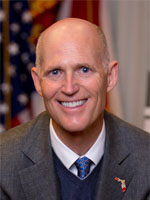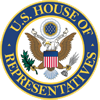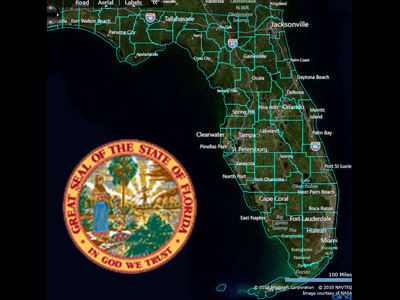
Rick Scott (R) |
Background
Rick Scott was elected Governor of Florida in 2010, in his first attempt at elective politics.
Born in Bloomington, Illinois and raised in Kansas City Missouri, Scott had a humble upbringing but became very successful as an entrepreneur in the health care industry. Enlisting in the navy after high school, he served aboard a frigate as a radarman, then received a BA in business from UM-Kansas City, and later a law degree from Southern Methodist University.
As an attorney, he did merger and acquisition work in health care, and led a $6B offer to purchas HCA. When that deal fell through, he started Columbia Hospital Corporation with his own savings. After 9 years of hospital acquisition he acquired HCA, Inc. and merged the two into Columbia/HCA. The company was a leader in health care efficiency and cost control, becoming one of the top 50 best performing companies of the S&P 500. Over time, he acquired a controlling interest in the American Health Network and Discover Health, and founded Solantic Corporation, which operates a string of urgent care centers across Florida.
In 2009, he formed the advocacy group Conservatives for Patient's Rights, which was active in the fight against Obamacare, specifically opposing the public option.
The 2010 election featured a hard-fought Republican primary that matched Scott's tea party backing against the "establishment" candidate, Bill McCollum. Scott prevailed with 46% of the vote, to Mcollum's 44%. A third candidate, Mike McCalister pulled 10%. In the general election, Scott faced Democrat Alex Sink and squeeked by 49% to 48%. In heavily Democrat Palm Beach County, Sink received 58%.
In 2014, Scott narrowly won re-election over former governor Charlie Crist (who had switched to the Democrat party) 48-47.
Now term limited as Governor, Scott seeks to bring his conservative approach to governing to the US Senate. As Governor, he rejected Obama's money for high speed rail, implemented drug testing for welfare recipients, rejected the Obamacare funding for Medicaid expansion, supported the 2nd amendment with the "Docs vs. Glocks" law (although he has softened somewhat after Parkland), and has generally been praised by both sides of the aisle for his management during hurricanes and other crises.
|
|---|








